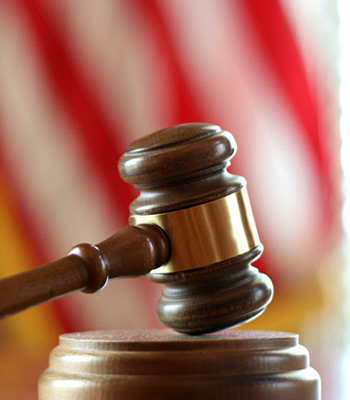Judge Gary Brown, a federally-appointed magistrate judge of the U.S. District Court of the Eastern District of New York, recently ruled that an IP address is no more able to identify wrong-doers than a telephone number can be used to incriminate someone.
His determination was made in response to a fresh round of lawsuits launched by Voltage Pictures. The film studio's sights are set on 2,500 BitTorrent users who are accused of illegally downloading The Hurt Locker. The Oscar-worthy flick suffered underwhelming box-office revenue, something the flim studio has blamed on piracy and an early leak of the film.
Judge Brown's thoughts are spelled out in this 26-page court ruling where he discusses the precarious nature of using IP addresses to identify individual perpetrators. He also recommended the case be dismissed on that basis.
"Thus, it is no more likely that the subscriber to an IP address carried out a particular computer function – here the purported illegal downloading of a single pornographic film – than to say an individual who pays the telephone bill made a specific telephone call," [...] "Most, if not all, of the IP addresses will actually reflect a wireless router or other networking device, meaning that while the ISPs will provide the name of its subscriber, the alleged infringer could be the subscriber, a member of his or her family, an employee, invitee, neighbor or interloper"
Source: Ruling
In 2011, Voltage Pictures had launched a "reverse class-action" lawsuit – the largest of its kind – which targeted 24,583 individuals thought to have downloaded The Hurt Locker. Those accused were being sued for an average amount of $2500-$3000 each. Interestingly, that means the studio stood to collect as much as $70 million or so in damages – enough dough to make any movie a box office hit.
Because of the film studio's "shoot first, ask questions later" approach, the original mega-lawsuit had been slowly unraveling as prosecutors scurried to link IP addresses to the identities of suspected culprits. In January 2012, the case was dismissed by Judge Beryl Howell on the grounds that Voltage Pictures could not produce enough evidence to support its lawsuit within the time limit of 120 days. Voltage tried narrowing its focus to 2,300 suspects but still couldn't meet the court's deadline. Judge Howell then denied the prosecution's request for an extension, effectively ending the lawsuit.
